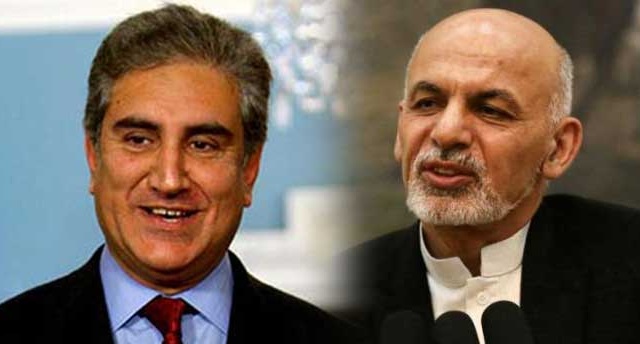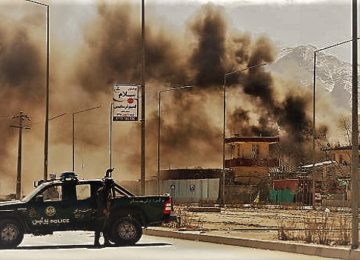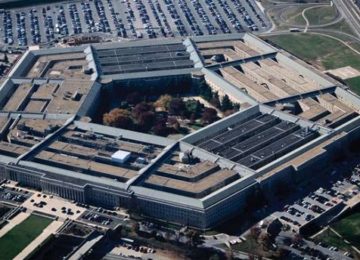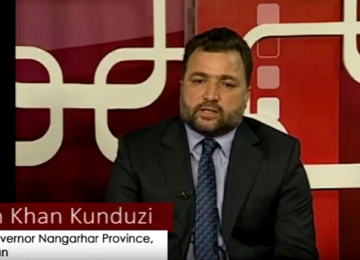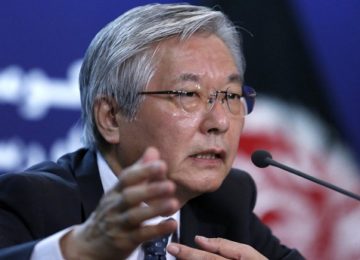Pakistan recently renewed its seven-year-old offer to the Afghan government to train its security and law-enforcement personnel, but it isn’t clear if it would be accepted this time after having been rejected in the past.
The offer was made when Pakistan’s new Foreign Minister Shah Mahmood Qureshi paid his maiden visit to Afghanistan on September 15. This was his first foreign visit after his party, Pakistan Tehreek-e-Insaf (PTI), won the July 25 general election and formed its government. The choice of Kabul as Qureshi’s first destination, for an overseas visit, was meant to convey to the Afghan government and people that Pakistan attached utmost importance to improving its often strained relations with the country.
Though apparently no breakthrough was made during the visit for overcoming the acute trust deficit between the two neighbouring countries, the trip provided an opportunity to review the bilateral relationship, and make decisions for activating the joint forums set up earlier for focused discussion on key issues such as security and terrorism, border management, trade, Afghan refugees, etc. The Afghanistan Pakistan Action Plan for Peace and Solidarity (APAPPS) set up early this year would remain the primary framework for cooperation in achieving peace through its five working groups. It was also decided that the other joint commissions for economic cooperation, and further facilitating Afghan transit trade via Pakistan, would also hold meetings to expedite work. The trilateral commission formed as a result of China’s initiative to improve relations between Afghanistan and Pakistan would hold its second meeting in the near future after having met for the first time last year. Due to the goodwill enjoyed by it in both Islamabad and Kabul, and owing to its capacity and willingness to make heavy investments in both Afghanistan and Pakistan, Beijing is in a unique position to mediate between its two neighbouring countries.
Of particular interest is the renewal of Pakistan’s offer to train Afghan security and police personnel. Pakistan has well-reputed training institutions where a good number of Afghan army and police officers could be trained.
Pakistan had first offered to train Afghan army officers in 2011 when then-Chief of Army Staff, General Raheel Sharif, visited Afghanistan. The same year, Pakistan proposed signing a strategic partnership agreement with Afghanistan. India was the first country with which Afghanistan signed a strategic partnership agreement in 2011. It caused concern in Pakistan and prompted it to offer a similar agreement to the Afghan government. However, the then-Afghan President Hamid Karzai listed many tough preconditions that Pakistan found unacceptable.
General Raheel Sharif’s successor General Qamar Javed Bajwa repeated offers of training Afghan army officers and also of intelligence cooperation. He also advocated an end to the blame-game, cooperation on border management and other steps for trust-building to help improve relations.
When Pak-Afghan relations showed signs of improvement following the newly elected Afghan President Ashraf Ghani’s visit to Pakistan, in November 2014, two months after being installed in power, Kabul sent six army cadets to train at Pakistan Military Academy in Kakul the following year. Two more Afghan army officers were sent to study at the National Defence University in Islamabad and the Staff College in Quetta. Though Pakistan would have liked to receive more Afghan military officers for attending training courses, Ghani made the argument that he took the decision despite domestic opposition in the hope that Islamabad would play a more positive and effective role in bringing peace to Afghanistan. No further Afghan army officers were sent to Pakistan for training as the relations between the two countries deteriorated due to the rise in violence in Afghanistan and the continuing terrorist attacks in Pakistan.
In comparison, the number of Afghan army officers proceeding to India for training registered a sharp increase every year. Indian media reports said 1,100 Afghan officers were receiving training in India annually. India also offered scholarships to 500 children of slain security personnel to study in its educational institutions.
There is a concern in Pakistan’s official circles that the Afghan army officers trained in India would return home with pro-India feelings and possibly harbour anti-Pakistan sentiment. The example of Afghan military officers getting trained in the erstwhile Soviet Union, returning to Afghanistan with communist ideas and then staging coups in 1973 and 1978 is a reminder that pro-India Afghan soldiers too could cause problems for Pakistan.
On its part, Pakistan has been repeating its offer to equip and train one brigade of the Afghan National Army, but there are no takers yet in Kabul. A memorandum of understanding was also signed for intelligence sharing between Afghanistan’s National Directorate of Security (NDS) and Pakistan’s Inter-Services Intelligence (ISI), but it was never implemented due to differences in the Afghan government and domestic opposition to President Ghani.
Despite all these setbacks, Islamabad should continue efforts to improve relations with Kabul both in the political and security-related areas, as the long conflict in its neighbourhood has had a negative impact on Pakistan.
This article originally appeared in GEO News on October 02, 2018. Original link.
Disclaimer: Views expressed on this blog are not necessarily endorsed or supported by the Center for Research and Security Studies, Islamabad.



